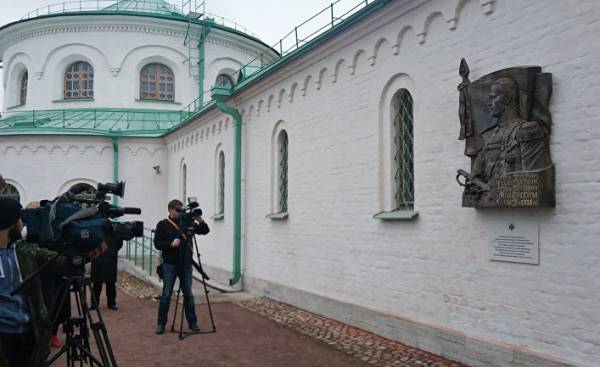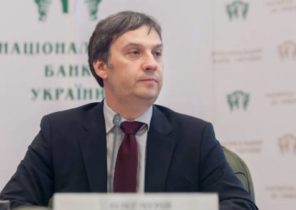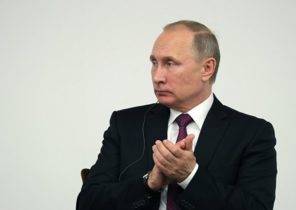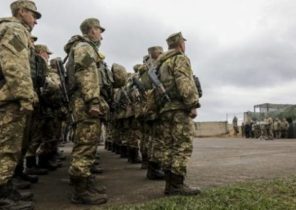
Mannerheim was in the military service of Russia for 30 years. In the Nikolaev cavalry school edition of Helsingin Sanomat became the first Finnish visitor for a long time.
12 Oct 1887 in Nicholas cavalry school in St. Petersburg, took the oath of allegiance to the king. A new course lined up. Among the 84 new students was 20-year-old Gustaf Mannerheim (Mannerheim Gustaf). The senior course was allowed to be riding.
Mannerheim planned purposeful promotion in the Russian Imperial army. Admission to the cavalry school was only the first step on this path. This school was one of the most prestigious in the Russian Empire. Here for two years preparing officers for the cavalry and Cossack troops. Have received there necessarily had to be of noble origin.
During the oath was performed the Church service. Orthodox services held at the Church, located on the second floor of the school. Mannerheim was one of four Lutherans, who were sworn separately under the leadership of pastor Jurgenson (to duplicate the research done).
White gypsum stucco decoration of the vaults of that Church have been preserved until now. Preserved marble slab, on which, as a reminder of military duty etched the names of the dead students. In the nineteenth century graduates of the school fought with Persia and Turkey.
Snow lies on the roof of the yellow building, built in the neoclassical style. Mannerheim is probably remembered winters spent here in the 1880s.
The cavalry school was closed immediately after the 1917 revolution, but inside the building seems to be as violent as during Mannerheim. Now here is the Armory. Instead of training on military Affairs to decide questions of modern defense.
The plant turned the Church into a hall of labor glory. Such facilities are glorifying the heroes of war and labor, was to be in Soviet times on each plant.
85-year-old Anna Vasiliev organized a Museum. She was a member of the Plant electronic equipment. In Soviet times the plant was, of course, your radio, and Vasiliev reported on the company’s achievements so profound as it was possible. When the Soviet Union collapsed, she took home the documents about the building and past the plant, and began to study history. The results of this work can be seen on the walls of the former Church, which hung military posters of Soviet propaganda. For them the slogan: “red army Soldier, help! Crimea will be Soviet!”
Vasiliev was surrounded by the Germans in the city. Finns under command of Mannerheim almost completely closed the ring of siege between lake Ladoga and the Gulf. This fact affects the attitude of Russian Marshal.
What she Vasilyev thinks about Mannerheim?
“I refer to it ambiguously. He served in Russia for 28 years, he loved Saint Petersburg. He gave orders to the Finns to bomb the city during the siege. He was also afraid for his soldiers,” — said Vasilyeva.
Classes at the cavalry school was harsh. In winter, the bedrooms, the temperature dropped to ten degrees. Many hours we had to spend riding on a wooden horse — so to achieve good posture and bearing. Only then he sat on a real horse. At full gallop it was necessary to cut the potatoes with a sabre, which was dangling on the rope. At the end of the first year students had received arms — a private Dragoon rifle.
The rules were very strict. The city students had to salute the monument to the Tsar and the Grand Dukes. However, the students of the senior course feast and drinking. It is said that once Mannerheim vomited out the window of the train. The General, who was riding in the next car, came at this time to get some air, and vomit hit him in the face. As punishment, Mannerheim was demoted right before the final exams, which could cost him his career.
The school even controlled the visiting cadets public houses. They identified a public house, which was under the supervision of a physician, and the cadets had permission to visit him once a week. Three cadets bought the services of one woman. It cost one ruble and twenty-five cents for half an hour.
The exhibition Vasilyeva presented a more formal history of the school. On the wall hangs a coarse-grained picture of Mannerheim. Vasiliev knows that Mannerheim was not among the best students of the school. “But I remember more about how good he looked, and how beautiful it was sitting form.”
Plant electronic equipment began to work in 1961. He is now part of the Russian state concern “Almaz-Antey”, which produces anti-aircraft missile system and radar. After the outbreak of war in Ukraine, the company got into the anti-Russian sanctions list of the USA and the EU. The company produces anti-aircraft missile systems “Buk”, the same that was shot down over Ukraine Malaysian passenger plane.
To visit Helsingin Sanomat in Finland, has not visited this building for decades. The visit was organized in the result of many attempts. The building is going to sell. The production is withdrawn from the center of St. Petersburg.
Training Mannerheim in the Nicholas cavalry school was paid by his relatives. He received from them, at least 1,5 thousand rubles for two years. It was a big amount. School for Mannerheim was a springboard to get into a cavalry regiment, a service which cost more expensive. From there he wanted to get to the Academy of the General staff, but this dream did not come true. Thus, he received the education of a staff officer, which was considered the basic education of senior officers.
Cavalier appeared in the XVIII century, when Peter the great had formed a regiment for the guard of the convoy of the Empress Catherine I. the Service included the honorary guard at the yard and participated in the coronation. Mannerheim served in the horse guards in the years 1891-1904. He taught novices stood guard at the Winter Palace in the pants from elk suede, was a place of honor near Emperor Nicholas II during the coronation in 1896, he went abroad to purchase horses for the Imperial stables.
In the Petersburg period of his life Mannerheim married a rich Russian heiress Anastasia Arapova. The pair first met at a ball in St. Petersburg in 1891. The wedding took place in 1892. The Union was good and profitable party for the poor guardsman, with this marriage, he got rid of financial problems. The couple had two daughters: Anastasia, appeared in 1893, and Sophia 1895 birth.
The marriage soon cracked. Mannerheim was a good soldier, but a bad husband. He continued to lead a dissolute life, gambling and maintain relationships with mistresses. In 1903, between spouses there was a gap. In fact, divorced and left without a livelihood Mannerheim went to the Russo-Japanese war.
The Japanese, living in St. Petersburg, I know Mannerheim’s very good — but the reason is not in this war. Just obvenchatsya Gustaf and Anastasia lived in 1892-1893 years in a rented apartment in the house on the Moika embankment. The apartment had 12 rooms and three utility rooms. They also had three stables and four crew of a barn.
Now in this house waving the Japanese flag. Deputy Consul General Akira Osawa (Akira Osawa) deals with issues of diplomatic relations of his country in Saint-Petersburg. In the Northern capital automotive is the Toyota plant, so important are economic issues. “Usually forty Japanese men only know Miku racing driver of Hakkinen (Mika Häkkinen) and Nykanen skier Matti (Matti Nykänen),” said Osawa.
During receptions at the Consulate General of Japan always talk about Mannerheim. Guests will learn that the future of the Finnish Marshal and President of Finland Gustav Mannerheim was shot in this building apartment. “We have kept the purpose of each room. Only instead of the stables we have a garage,” said Osawa.
During the Russo-Japanese war Mannerheim sought to gain combat experience, and he got it. It was important for the promotion. Since the war, only sent part of the army, Mannerheim went on to serve as a volunteer, which led to serious conflict with their relatives. The policy of Russification of Finland started in 1899. Mannerheim explained to the relatives of his departure that he, like Finn, it is necessary to use every opportunity to gain experience.
“In the war waged abroad, a man fighting not for a government but for the country, in the army which he serves. In fact, he do it voluntarily or it will urge it to do, in my opinion, not much difference. In fact, and in another case he only performs the duty officer,” wrote Mannerheim to his brother Charles in June 1904. Carl was an ardent opponent of the policies pursued by Russia in Finland.
In October-November 1904, Mannerheim went to war in Manchuria. In addition to the road of Luggage he took with him three horses. During the fighting he noticed a large miscalculations of the leadership of the Russian army. In addition, it is understood that the methods of warfare have changed in connection with the use of artillery and machine guns.
Initially, Mannerheim was assistant commander of a regiment and even tried to fight the drunkenness of officers. He believed the role of the police, watching a sober lifestyle, “funny”. Having taken on serious responsibilities, he became a member of reconnaissance. He also commanded a detachment of Chinese volunteers during long reconnaissance RAID into the Japanese rear.
The following year, Russia lost the war, was forced to surrender Port Arthur to Japan to leave Manchuria. Hopes of the Russian Empire to strengthen the position in the far East collapsed.
Mannerheim went to a two-year reconnaissance expedition to Central Asia and China.
The Russo-Japanese war is considered a prelude to the First world war. In 1914 Mannerheim was again chosen to side with Russia in the war. He regarded Germany as the aggressor, whereas in Finland was dominated by Pro-German sentiments.
During the war, Mannerheim was promoted from the commander of the cavalry brigade to the commander of a cavalry division and fought in Poland and Galicia. In the autumn of 1914 Mannerheim gave a hasty order, which subsequently regretted. A squadron of guards lancers went Hiking in the bayonet charge that led to numerous losses. It is believed that after this, Mannerheim has always tried to reduce losses to a minimum. Later Mannerheim’s brigade covered the retreat of the 9th army.
Mannerheim was promoted and became commander of the joint Russo-Romanian army. She came out of the battles of 1916-1917, which helped to stabilize the situation on the Romanian front. In may 1917 he was promoted to Lieutenant General and commanded the 6th cavalry army, although the army had collapsed under the onslaught of the revolution. It was his last significant success in the Imperial army.
In December 1917 Mannerheim returned to Finland already independent. The last time he was in St. Petersburg on the eve of the New year. His resignation from the Russian army was adopted in February 1918. Mannerheim was given a pension in 3761 ruble, which was never paid to him.







